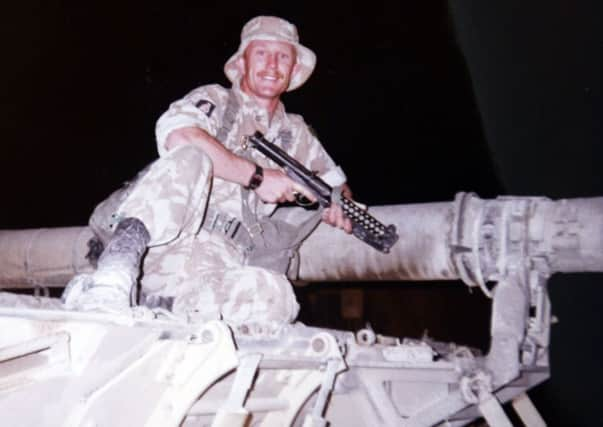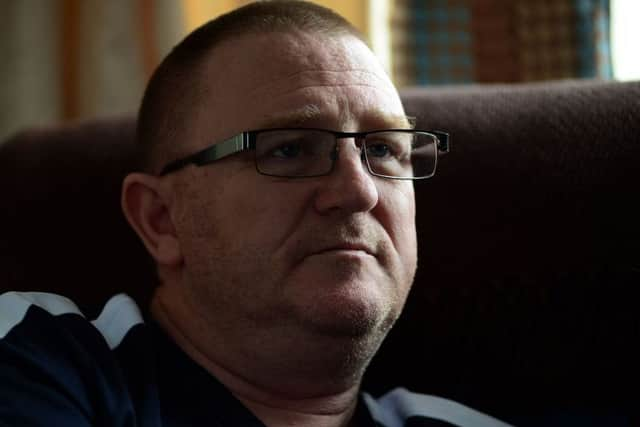Casualty of war: A Doncaster man's on-going battle with Gulf War Syndrome


EVEN though he’s in obvious discomfort, Rodger Needham says this is one of his better days – because there are times when he struggles to even get out of bed.
Rodger is 48 years-old and should be in the prime of his working life. Instead, he hasn’t had a job in 15 years and relies on Disability Living Allowance and his war pension, while his wife, Sue, is unable to work because she is effectively his carer. It’s not the life either of them expected, or hoped for.
Advertisement
Hide AdAdvertisement
Hide AdRodger suffers from Gulf War Syndrome – a medical condition characterised by fatigue, chronic headaches, muscle pain and cognitive problems, among other symptoms. Its origin has been the subject of much debate with many veterans of the first Gulf War blaming a cocktail of injections and pills given to them as protection against chemical attacks for the health problems they now suffer.


Rodger, who lives with his wife in Dunscroft, near Doncaster, was among the 53,462 members of the British armed forces deployed to the Persian Gulf as part of Operation Desert Storm – the US-led campaign against the Iraqi invasion of Kuwait in 1990.
He now has chronic fatigue and post traumatic stress disorder (PTSD). But he isn’t alone. In January, the Royal British Legion called on the Government to do more to help veterans suffering from Gulf War Syndrome, after claiming as many as 33,000 former soldiers could potentially be living with illnesses linked to serving in the conflict.
The Ministry of Defence (MoD) responded by saying it has funded extensive research into Gulf War illness and continues to monitor developments in the US, insisting it would give consideration to any new research proposals. For many veterans, however, life remains hard and there is a feeling among them that they have been forgotten by those who sent them into action.
Advertisement
Hide AdAdvertisement
Hide AdRodger’s story typifies their anguish. He joined the British Army at 17 and when the Gulf War erupted six years later he volunteered for active service and was attached to 53 Ordnance Company, spending time in Saudi Arabia and Kuwait.


“It was bleak and there was sand everywhere,” he says. “During the day it was very hot and at night time it was freezing. On one occasion we passed burnt out trucks and bodies, and most nights the alarms went off warning of possible chemical attacks.”
Rodger first felt unwell while he was out in the Middle East. “It got to the point where I felt nauseous all the time. I don’t know if that was worry or from the alarms constantly going off, but near the end after we’d had all the final injections a few of us started feeling sick. But you just got on with it.”
He went out to the Middle East at the start of October 1990 and returned on March 23 the following year – the day before his eldest daughter Clare’s first birthday. He spent his remaining three years with the army based in Ripon, by which time he noticed his health was already deteriorating. “I’d always played football and squash wherever I went so I was fairly fit, and then I started struggling with the combat fitness test,” he says.
Advertisement